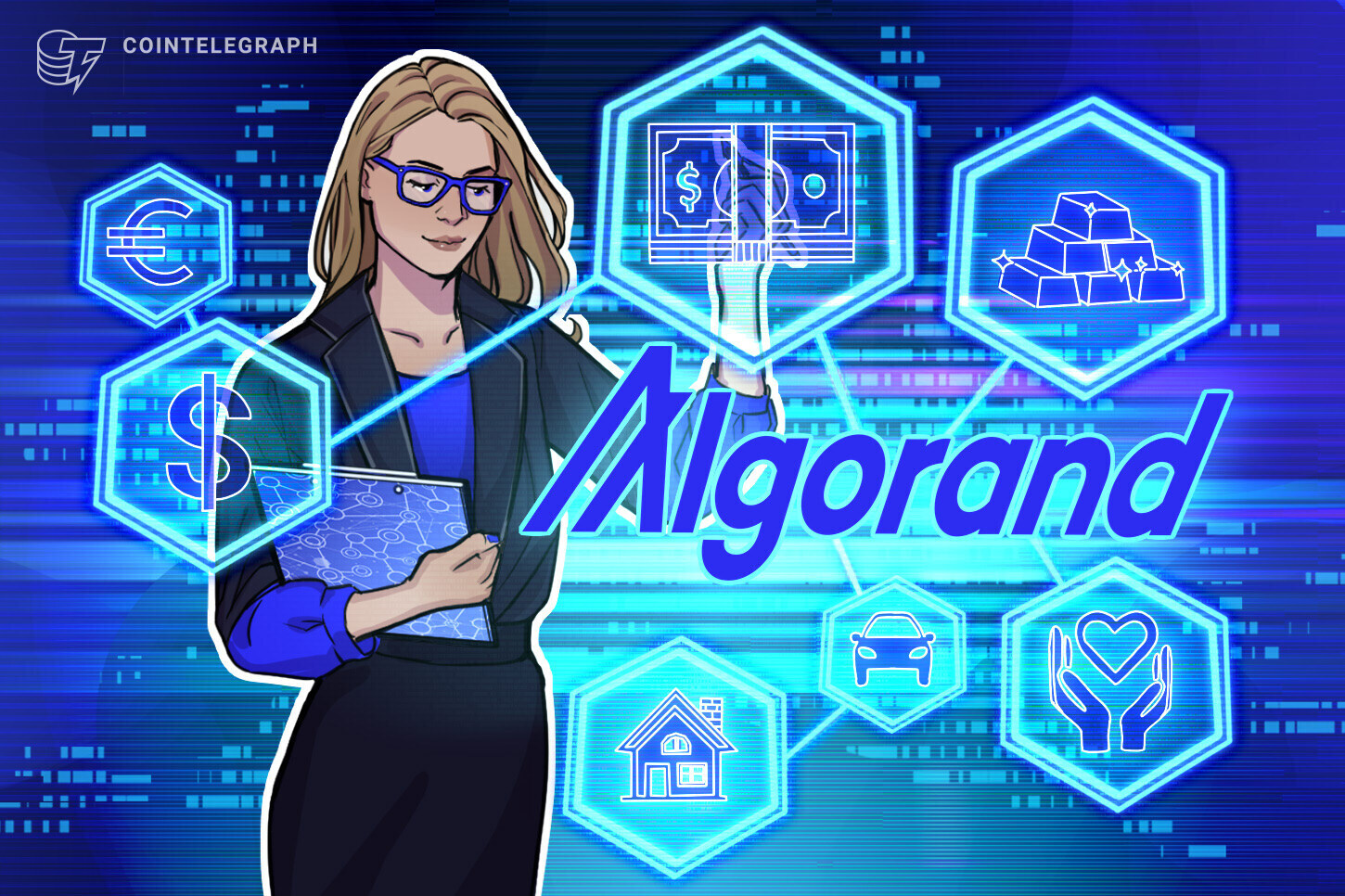Sponsored Content
Looking beyond the financial spectrum, the introduction of blockchain technology has a positive impact on real-world systems and processes. The same core features that made blockchain an essential infrastructure for the future of finance, such as transparency, security and immutability, can improve operations in industries ranging from real estate to humanitarian aid.
However, widespread adoption of the technology requires networks to be scalable, offer instant transaction finality and maintain low fees. Algorand is a layer-1 blockchain that possesses all these qualities.
The network can process 10,000 transactions per second with instant finality. Its pure proof-of-stake consensus mechanism keeps energy usage minimal while allowing integrated projects to decentralize. Algorand employs a low, flat fee structure for all transaction types, making it well-suited for a wide range of real-world applications.
The following five use cases show Algorand in action and demonstrate what it is capable of.
1. Lofty
Lofty is a marketplace for tokenized real estate, enabling users to invest in properties on a fractional basis, for as low as $50.. Tokenization expands the real estate market and allows investors across the US to buy and sell property at any time. Algorand’s instant finality and low fees enable Lofty to make real estate investment even more accessible.
Unlike traditional real estate investment trusts that limit shareholders’ control over the property, Lofty gives investors complete control over their assets through a legal DAO. Shareholders can collectively manage properties by voting on decisions like maintenance and rent adjustments.
Fractional ownership allows shareholders to receive rent in USDC from jointly owned properties as well. Lofty has generated $4 million in rental income for its users so far.
2. Folks Finance
Folks Finance is an Algorand-based decentralized finance (DeFi) platform that offers lending, borrowing, trading and liquid staking. The crosschain platform replaces the slow and costly processes of traditional finance with a system that works directly on the blockchain. Users don’t need banks, credit checks or paperwork to access financial services — all that is needed is just a wallet.
Algorand makes this possible by offering instant finality, low fees and a secure, decentralized network. Its high scalability also ensures the platform can support growing demand without slowing down or raising costs.
3. Meld Gold
Just like the case in real estate, traditional investments in precious metals require substantial capital and act as a barrier to entry. Buying physical gold or silver also brings storage and security costs, further heightening that barrier.
Meld Gold uses Algorand to carry the entire supply chain onchain and tokenize ownership of precious metals. Each token represents one gram of gold or silver and is fully redeemable. Traders can buy gold or silver by investing as much ALGO as they want, without a minimum requirement. Algorand’s instant finality and low fees allow fast, cost-effective transactions, while its transparency removes the need for intermediaries. This opens the market to both everyday investors and major institutions.
4. HesabPay
Humanitarian causes can also significantly improve their operations by integrating blockchain. In regions where financial infrastructure and the banked population are limited, like Afghanistan, accessing aid and making everyday payments can be slow and unreliable.
HesabPay overcame this limitation by developing an Algorand-based interoperable digital payments system. Whether for humanitarian aid, daily expenses like paying bills or peer-to-peer payments, the system enables fast, secure transfers within a single app. Algorand’s low fees and instant finality allow HesabPay to operate efficiently even at high volume, reducing distribution costs and improving access for communities excluded from formal financial systems.
5. Quantoz Payments
The cryptocurrency ecosystem has a lot of stablecoins, but few are regulated, specifically euro-dominated ones. The lack of a regulated digital euro has held back innovation in the fintech space, especially for applications needing stable, low-fee transactions.
Quantoz Payments launched a fully regulated digital euro (EURD) on the Algorand blockchain to meet the growing demand for secure, fast and cost-efficient digital payments in Europe. Algorand’s low transaction costs and instant finality make EURD ideal for everyday use cases like public transport and retail payments. Algorand also supports secure, atomic transactions and incorporates built-in compliance tools such as whitelisting and asset freezing. This makes EURD both enterprise-ready and regulator-friendly.
Conclusion
Algorand’s speed, cost-efficiency and flexibility make it a practical foundation for building useful applications. These use cases show how the network’s technical design helps projects tackle real-world challenges in areas ranging from finance and real estate investing to aid distribution.
As blockchain adoption grows, Algorand can be a key player in shaping the operations of industries worldwide. This wide array of applications demonstrates how the network’s design can handle diverse needs, making blockchain technology more practical and accessible for broader use.
Learn more about Algorand
Disclaimer. Cointelegraph does not endorse any content or product on this page. While we aim at providing you with all important information that we could obtain in this sponsored article, readers should do their own research before taking any actions related to the company and carry full responsibility for their decisions, nor can this article be considered as investment advice.
Disclaimer.This content is part of a paid partnership. The text below is a sponsored article that is not part of Cointelegraph.com editorial content. The material is written by our advertorial team and has undergone editorial review to ensure clarity and relevance, it may not reflect the views and opinions of Cointelegraph.com. Readers are encouraged to conduct their own research before taking any actions related to the company. Disclosure.


